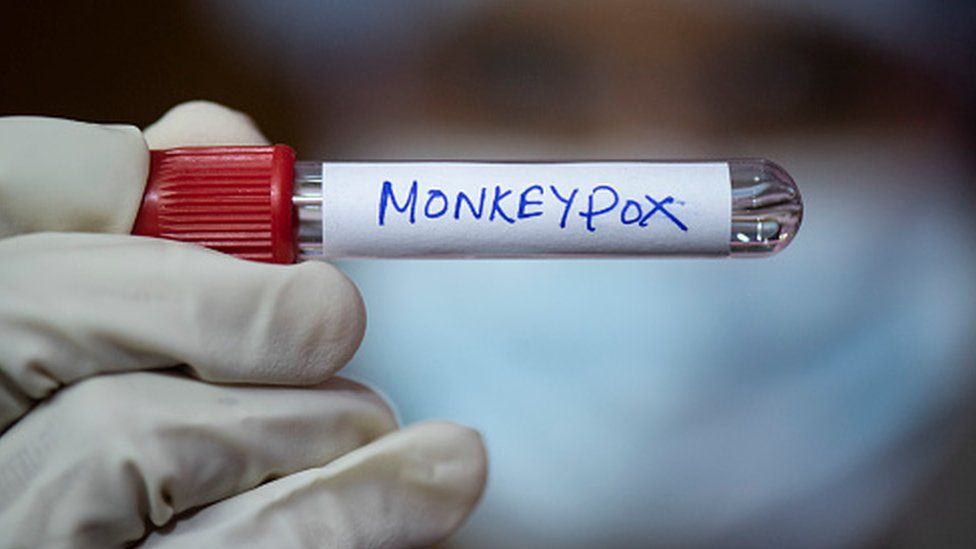By Michelle Roberts
Monkeypox is no longer a global public health emergency, the World Health Organization (WHO) has said, almost a year after the threat was raised.
The virus is still around and further waves and outbreaks could continue, but the highest level of alert is over, the WHO added.
The global health body's chief Tedros Adhanom Ghebreyesus called on countries to "remain vigilant".
It can be passed on by close contact with someone who is infected.
What is monkeypox?
Its official name is Mpox and it is caused by the monkeypox virus, a member of the same family of viruses as smallpox, although it is much less severe.
Initial symptoms include fever, headaches, swellings, back pain, aching muscles.
Once the fever breaks a rash can develop, often beginning on the face, then spreading to other parts of the body, most commonly the palms of the hands and soles of the feet.
Anyone with the virus should abstain from sex while they have symptoms, to help prevent passing it on to others.
Vaccines can protect people too.
More than 87,000 cases and 140 deaths have been reported from 111 countries during the global outbreak, according to a WHO count.
But almost 90% fewer cases were recorded over the last three months compared with the previous three-month period, meaning the highest level of alert is no longer required, Tedros said.
In the UK, only 10 cases have been reported since the beginning of the year.
The announcement comes just a week after the UN agency also declared the Covid emergency over.
Declaring a public health emergency of international concern (PHEIC) signals that countries need to work together to manage a shared threat, such as a disease outbreak.
There is now just one WHO-declared PHEIC - for poliovirus, which was declared in May 2014.
Dr Katy Sinka, head of sexually transmitted infections at the UK Health Security Agency, said: "If you're eligible and still need to take up the vaccine, please come forward ahead of the summer months to ensure you have maximum protection.
"First doses of the vaccine will end on 16 June and both doses will cease at the end of July."


Comments
Post a Comment